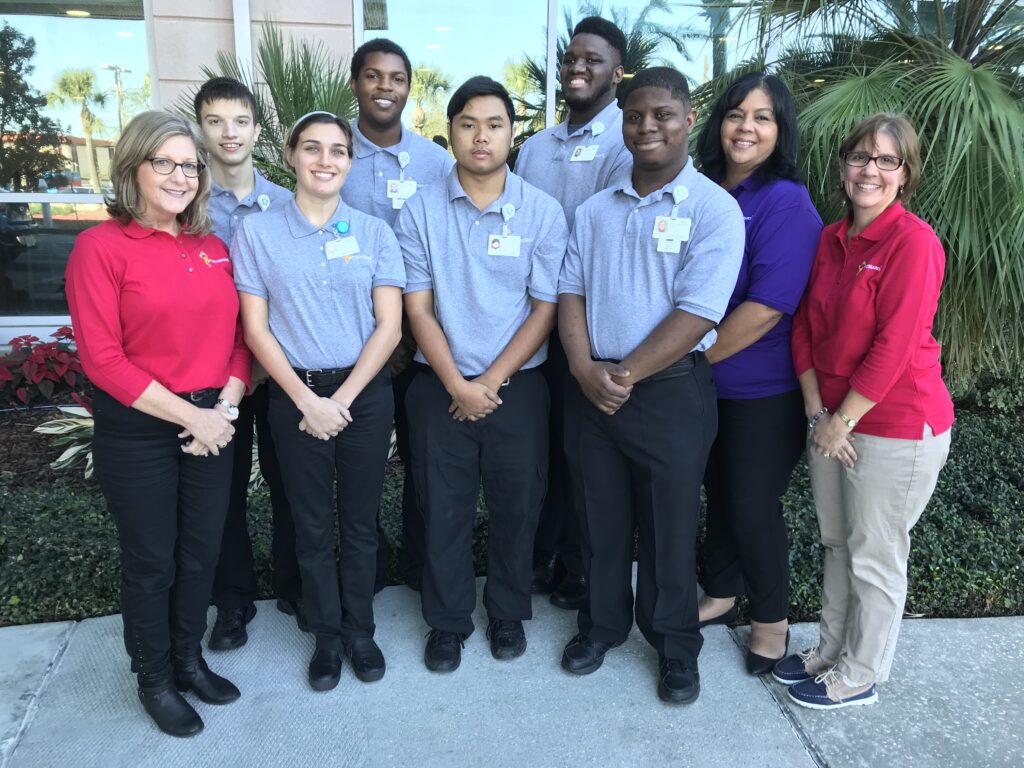Project SEARCH Puts Students With Disabilities on Track for Career Success
by TERESA SCHIFFER
photos PROVIDED BY Project SEARCH
Finding a job fresh out of high school is a challenge for anyone. For young adults with intellectual or developmental disabilities, those challenges multiply. Fortunately, there is a program to help these young people get the training they need to enter the workplace prepared. It’s called Project SEARCH, and it’s partnered locally with Lakeland Regional Health to give graduating students a leg up in a competitive job market.
Project SEARCH began in 1996 at Cincinnati Children’s Hospital Medical Center. Erin Riehle felt that the hospital could do more to help serve individuals with developmental disabilities, so she developed a program that would prepare them for entry-level positions at the hospital. Over the years, the program grew into a network of sites throughout the world. Locally, the program is administered by the Center for Independent Living in Lakeland. Project SEARCH is currently in its fourth year in Polk County.
Program Director Jascinth Lawrence gave us some insight into how Project SEARCH aids disabled youth in Polk County. By partnering with the Polk County Public Schools and the Vocational Rehabilitation program, Project SEARCH is able to identify candidates for the program. The program has a capacity for 12 enrollees, and currently has nine students. The students work as unpaid interns at Lakeland Regional Health, gaining valuable work experience in a variety of departments.
“Together, we have developed a program that would allow young people in their final year of high school who have chosen to follow a career path and have already achieved the requirements for a high school diploma, they are able to work for one year at the hospital, learning three different jobs in what we call ‘rotations,’ ” explains Lawrence. Each rotation is 10 weeks long and is geared toward developing real-world job experience with marketable, complex skills.
Sandy Perlewitz is the Project SEARCH Facilitator at Lakeland Regional Health. “The program provides hands-on job training for these students,” she says. The program provides any necessary accommodations students need, as well as on-site mentors. Students can work in a number of departments, including food service, laundry, and patient transport.
The benefit of this program is that not only are these students learning useful job skills, but they are also learning the soft skills required in any workplace, social skills such as how to communicate at work and what’s not appropriate. At the end of the program, Lawrence and her team are able to support the students’ efforts to get employment. Lakeland Regional Health hires many of the students, but some go on to work in other places, such as restaurants, nursing homes, and more.
These aren’t bad jobs they are getting, either. The goal is to help students find jobs that pay more than minimum wage and give them at least 30 hours per week. Some students are now making more than $15 per hour with full medical benefits. Last year’s graduating class had an employment rate of 100 percent.
This is a labor of love for those who work in the program, and that love is making a huge impact in the lives of these students.
